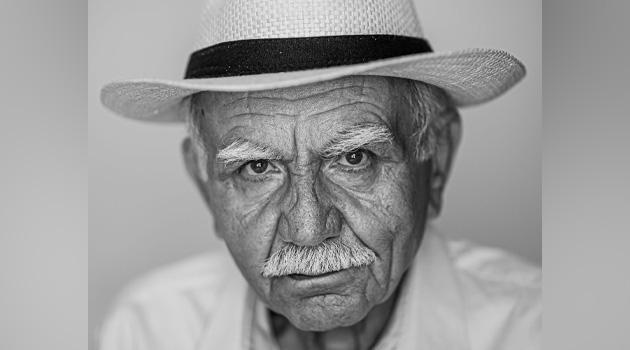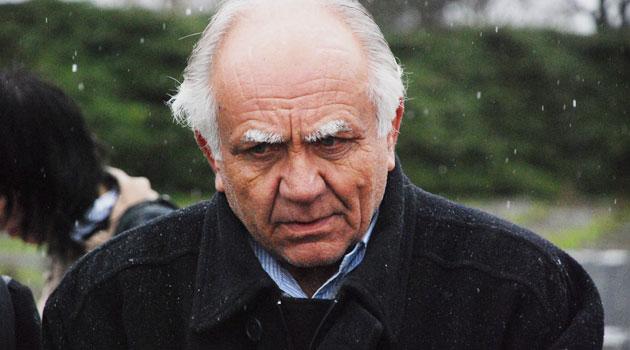Jan Hauer, one of the most eminent representatives of the Czech Sinti, has passed away

He was always elegant, kind and wise under every circumstance, with an unbelievable memory and a determination to carry on the legacy of his forebears. That was Jan Hauer, an eminent member of the community of Sinti living in the Czech lands at least since the start of the 19th century who was a descendant of Holocaust survivors and who strove to commemorate them until the last moments of his life.
Mr. Hauer was born in 1947 to parents who had both survived Nazi persecution and who were both afflicted by the lifelong trauma of enduring those hardships and the loss of their relatives. Before he was born, his mother lost two children in the camp at Lety u Písku and his father lost his first wife and four children in Auschwitz II-Birkenau – “my siblings”, as Mr. Hauer emphasized frequently when recounting this history. He spent most of his childhood with his father and his siblings in his father’s postwar family: “Dad practically raised us himself. He cared for us as best he could. All night long he kept our wagon heated so we wouldn’t be cold, he got up at 4 AM, he cooked for us, he baked buns, and all the while he was going out into the world to haggle so he could feed us.”
It was not until Mr. Hauer was an adult that he learned in more detail about his parents’ pasts during the war when, in the late 1960s, he joined his father’s search to learn what had actually happened to his children who had been born during the interwar period. He traveled with his father to Germany, visiting archives and relatives who had also survived the Holocaust.
During this gradual revelation of the fates of his relatives and the acquisition of archival documents, Mr. Hauer’s interest also grew to uncover more of his family’s history. With the aid of friends, he accumulated archival materials documenting his family’s history into the 19th century and family photographs that are a unique documentation of how his relatives lived in the Czech lands during the First Czechoslovak Republic.
A substantial part of the photographs from Mr. Hauer’s archive became part of the exhibition called “A Vanished World” (Zaniklý svět), which opened in 2007 at the Trade Fair Palace in Prague in the presence of the then-President of the Czech Republic, Václav Klaus. Thanks to Mr. Hauer’s pursuit of dignified remembrance for Holocaust victims, the archive of the Museum of Romani Culture also holds a manuscript by his mother, the late Božena Pflegerová.
Written up during the 1980s, her testimony as to the conditions in the concentration camp at Lety u Písku and the experiences that she lived through there is the most detailed such account to date and is unique. Her son, Mr. Hauer, abounded in wisdom, quick judgment, and a strong sense of tradition.
When, in 2020, Mr. Hauer became an expert jury member selecting the winning design for the new memorial at Lety u Písku, it was exactly the design he had instinctively picked that eventually succeeded from among the 41 designs submitted to the architects’ expert jury. During his final year of life, he also intensively worked on his own book, entitled My People (Moji lidi).
Mr. Hauer hoped that his book would demonstrate the depth and strength of the history of his extended family, of whom he was accordingly proud and over whom the Second World War and its tragic events cast a shadow. Although the manuscript of this book containing archival documents, family photographs and a narrative of his own is now ready for publication, he did not live to see its release.
However, as Mr. Hauer writes in the book when remembering his relatives: “If God grants it, we will meet again one day around a shared repast.” Mu delu tumengi Devlu ruva.

